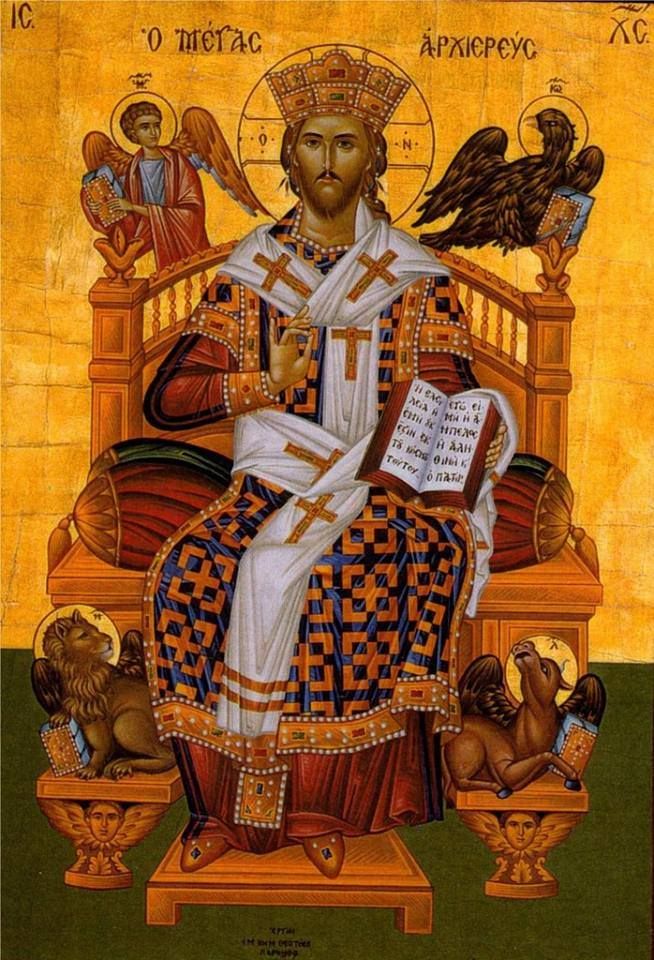 The Roman Church has a separate feast of Christ the King in 1925, with Pius XI’s encyclical Quas Primas. It was to counter the rise of secularism by proclaiming that Christ is the only true king of the believers. The original and ancient feast of Christ the King, however, is today, Palm Sunday. The Gospels record that Jesus is received in Jerusalem, imitating King David by riding into the city on a humble donkey. This is to become a central theme in Holy Week. The Sanhedrin will condemn Jesus for blasphemy, but will give him over to Pontius Pilate for execution for political reasons, that he set himself up as a rival king to the Emperor, a crime of treason. This is, in fact, the crime for which Pilate judges him, putting the accusation on the cross, “Jesus of Nazareth, King of the Jews.” The feast today is of immense spiritual importance, but, unfortunately, got tangled up with the concept of “king” that the people had. They wanted a political Messiah who would free them from Roman rule. Instead, Jesus tells Pilate, “My kingdom is not of this world,” and he forbids his followers to fight for him. The kingdom of God is not a kingdom of worldly power, but a kingdom of our hearts and minds given freely to Jesus, the Son of God, that we may live in peace with our neighbor and with the will of God, and may grow in wisdom and understanding. St. Paul describes what the kingdom of God is like in today’s epistle: “ … whatever is true, whatever is honorable, whatever is just, whatever is pure, whatever is lovely, whatever is gracious, if there is any excellence and if there is anything worthy of praise, think about these things” (Philippians 4:8).
The Roman Church has a separate feast of Christ the King in 1925, with Pius XI’s encyclical Quas Primas. It was to counter the rise of secularism by proclaiming that Christ is the only true king of the believers. The original and ancient feast of Christ the King, however, is today, Palm Sunday. The Gospels record that Jesus is received in Jerusalem, imitating King David by riding into the city on a humble donkey. This is to become a central theme in Holy Week. The Sanhedrin will condemn Jesus for blasphemy, but will give him over to Pontius Pilate for execution for political reasons, that he set himself up as a rival king to the Emperor, a crime of treason. This is, in fact, the crime for which Pilate judges him, putting the accusation on the cross, “Jesus of Nazareth, King of the Jews.” The feast today is of immense spiritual importance, but, unfortunately, got tangled up with the concept of “king” that the people had. They wanted a political Messiah who would free them from Roman rule. Instead, Jesus tells Pilate, “My kingdom is not of this world,” and he forbids his followers to fight for him. The kingdom of God is not a kingdom of worldly power, but a kingdom of our hearts and minds given freely to Jesus, the Son of God, that we may live in peace with our neighbor and with the will of God, and may grow in wisdom and understanding. St. Paul describes what the kingdom of God is like in today’s epistle: “ … whatever is true, whatever is honorable, whatever is just, whatever is pure, whatever is lovely, whatever is gracious, if there is any excellence and if there is anything worthy of praise, think about these things” (Philippians 4:8).
We must question ourselves today, do we want a king like the mobs did, a political king who will validate our nationalism and support our ideologies, or do we want a king that deifies our souls and hearts and minds? Only the one, true, authentic King can be our redemption and spiritual glorification, in a kingdom established on love of God and love of neighbor. On Holy Saturday, then, we sing, “Let all mortal flesh keep silence and with fear and trembling stand … for the King of Kings and Lord of Lords is coming to be sacrificed and to give himself as food for the faithful” (Cherubic Hymn, Paschal Vigil Liturgy).
“I charge you before God, who gives life to all things, and before Christ Jesus, who gave testimony under Pontius Pilate for the noble confession, to keep the commandment without stain or reproach until the appearance of our Lord Jesus Christ that the blessed and only ruler will make manifest at the proper time, the King of kings and Lord of lords, who alone has immortality, who dwells in unapproachable light, and whom no human being has seen or can see. To him be honor and eternal power. Amen” (1 Timothy 6:13-16).
“They will fight with the Lamb, but the Lamb will conquer them, for he is Lord of lords and king of kings, and those with him are called, chosen, and faithful” (Revelation 17:14).
“He has a name written on his cloak and on his thigh, “King of kings and Lord of lords” (Revelation 19:16).
Meditation by Archpriest David Petras
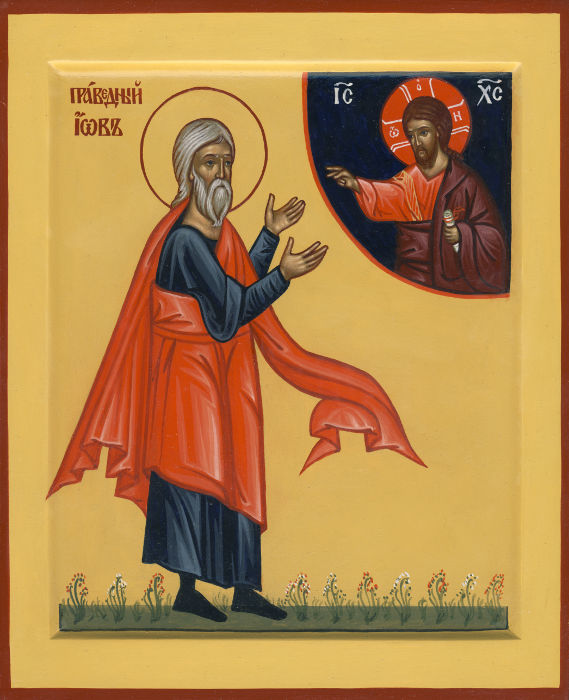 The Prophet Job’s feast on the Byzantine calendar is May 6 and the Latin Church’s calendar on May 10.
The Prophet Job’s feast on the Byzantine calendar is May 6 and the Latin Church’s calendar on May 10.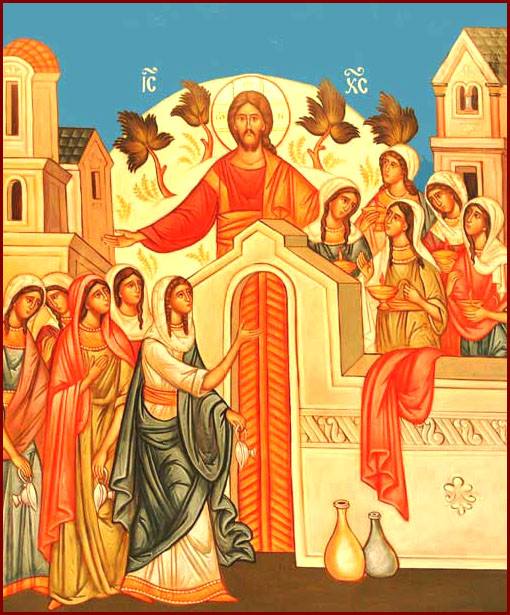 The Troparion at Matins:
The Troparion at Matins: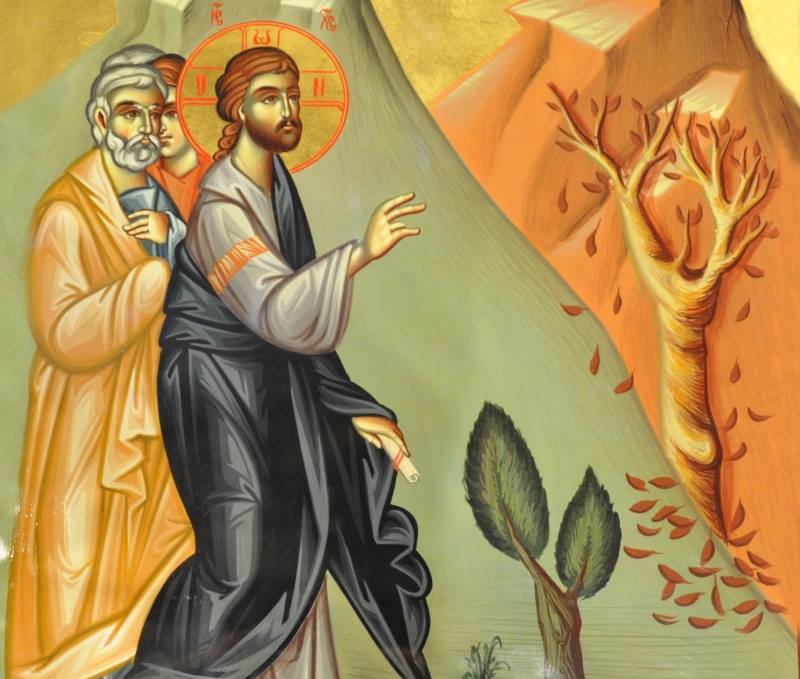 2) the cursing of the fig tree.
2) the cursing of the fig tree. The Roman Church has a separate feast of Christ the King in 1925, with Pius XI’s encyclical Quas Primas. It was to counter the rise of secularism by proclaiming that Christ is the only true king of the believers. The original and ancient feast of Christ the King,
The Roman Church has a separate feast of Christ the King in 1925, with Pius XI’s encyclical Quas Primas. It was to counter the rise of secularism by proclaiming that Christ is the only true king of the believers. The original and ancient feast of Christ the King, 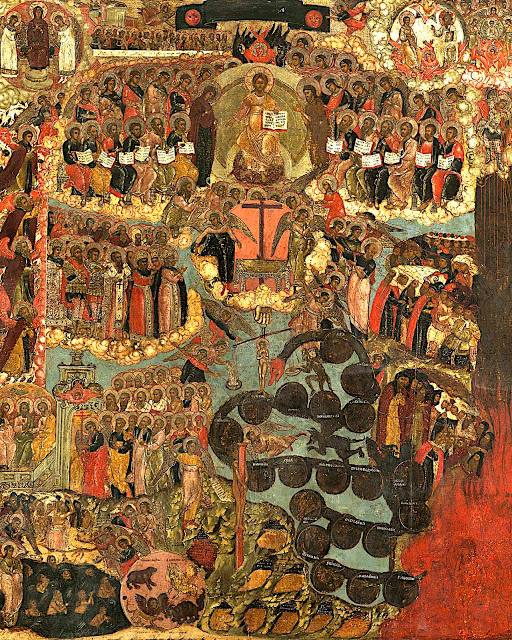 Everlasting life, promised in Holy Communion, is a central teaching of our faith. In the Nicene-Constantinopolitan Creed, which we recite in every Divine Liturgy and also frequently in the Divine Praises, says, “I expect the resurrection of the dead and the life of the world to come.” It is interesting that here we say, “I expect” rather than “I believe.” This is because this life beyond death is not only a matter of faith but also a matter of hope. And both faith and hope are virtues beyond human power alone, but need also the grace of God. In a way, we do not understand this life beyond death, probably we can that just as a child in the womb does not understand what it is to live in the world.
Everlasting life, promised in Holy Communion, is a central teaching of our faith. In the Nicene-Constantinopolitan Creed, which we recite in every Divine Liturgy and also frequently in the Divine Praises, says, “I expect the resurrection of the dead and the life of the world to come.” It is interesting that here we say, “I expect” rather than “I believe.” This is because this life beyond death is not only a matter of faith but also a matter of hope. And both faith and hope are virtues beyond human power alone, but need also the grace of God. In a way, we do not understand this life beyond death, probably we can that just as a child in the womb does not understand what it is to live in the world.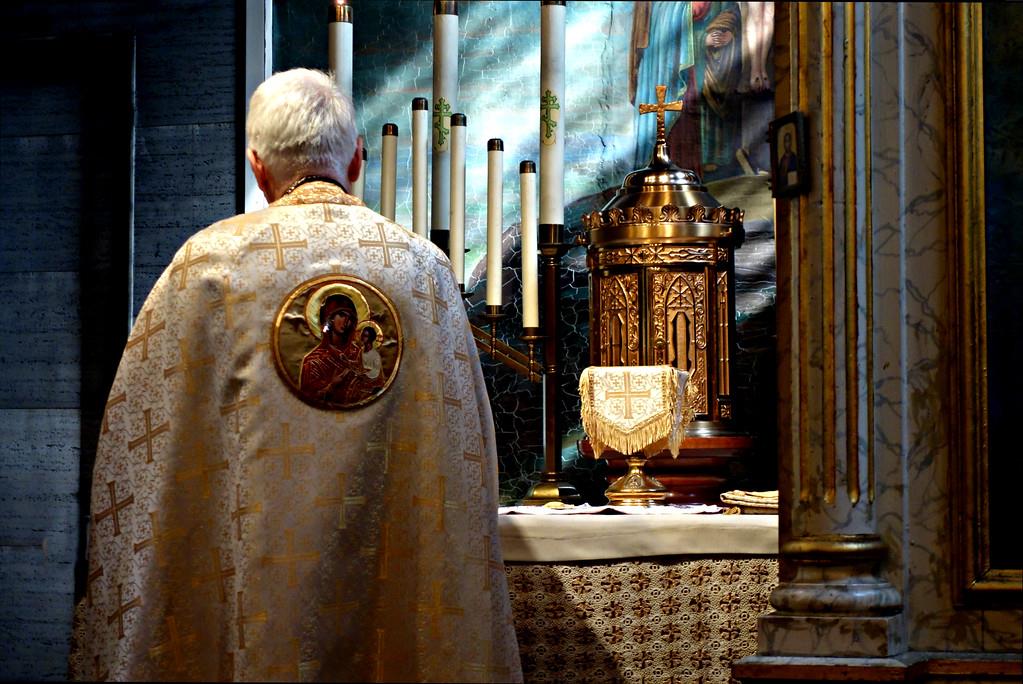 On March 7, the Catholic Herald in London and in Washington, DC, published the following article on the place and beauty of Eastern Catholicism by Jon Anderson:
On March 7, the Catholic Herald in London and in Washington, DC, published the following article on the place and beauty of Eastern Catholicism by Jon Anderson: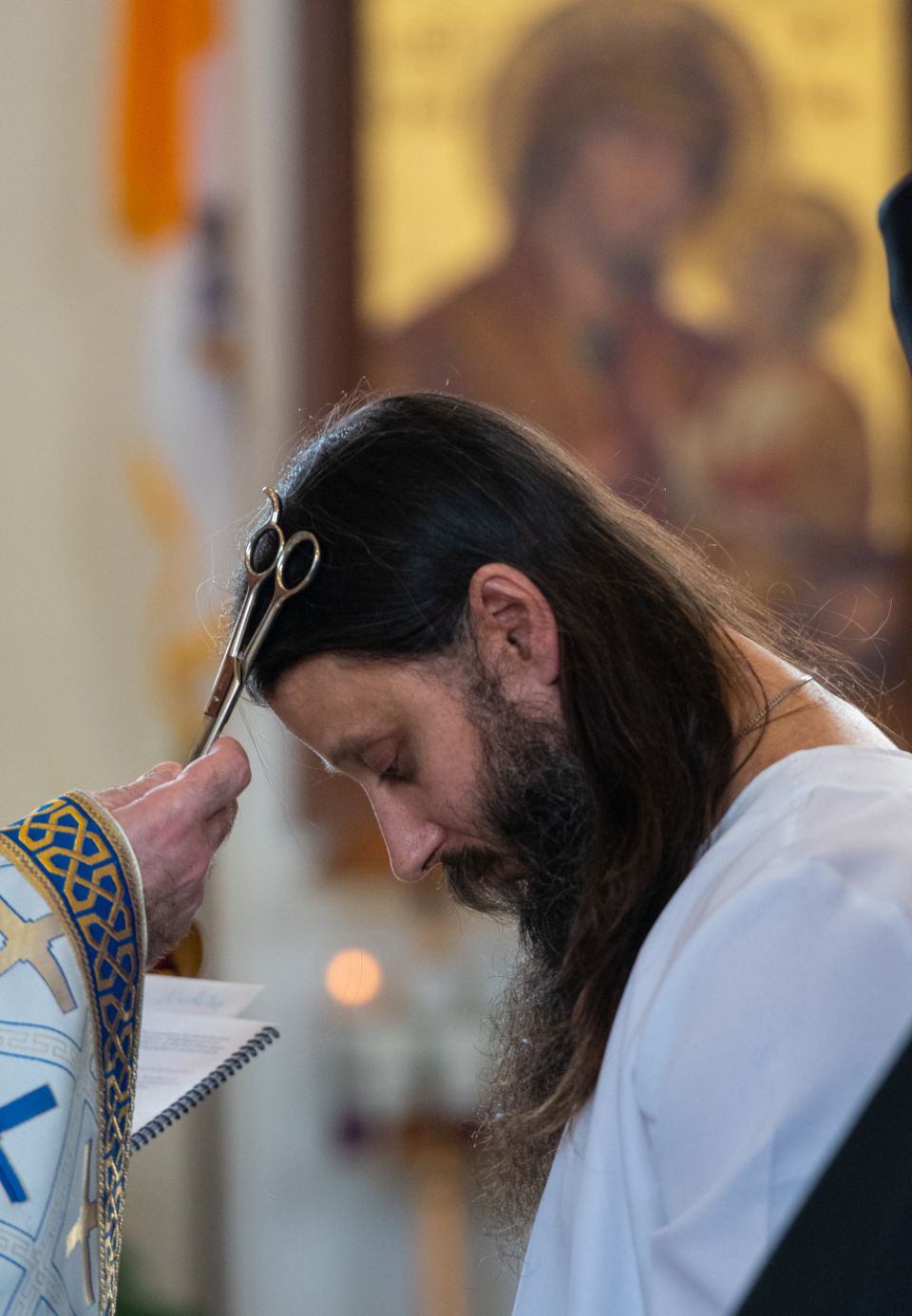 There is a new springtime for Byzantine monastic life in the USA happening now. Recently there was the tonsure of a new monk for the
There is a new springtime for Byzantine monastic life in the USA happening now. Recently there was the tonsure of a new monk for the 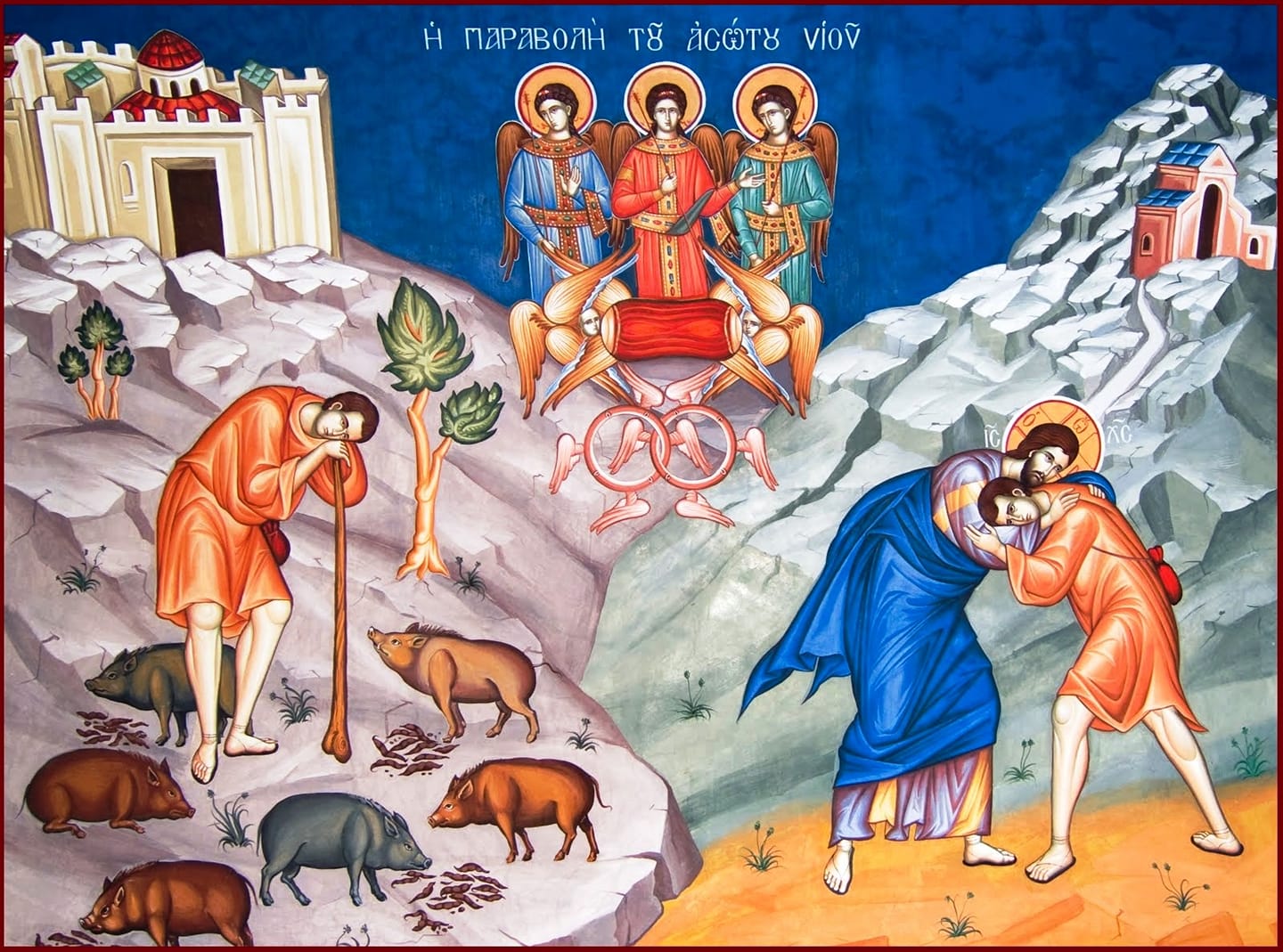 Patristic approach [the Church Fathers] to the imagery in the story of the return of the Prodigal Son, St. Cyril of Alexandria reminds us that Christ delivered this parable ‘immediately after the Pharisees and scribes murmured against Him, saying, “This man receiveth sinners and eateth with them.”’ Seeking to enlighten His detractors, the Lord spoke of a younger, prodigal son, who represented the sinners and publicans, and of an elder, faithful son, who represented the scribes and Pharisees. This, says St. Cyril, is the key to understanding the Prodigal son. …[T]he younger son, like the publican, through humility and repentance washed away his vices, while the elder son, like the Pharisee, through pride and judgmentalism sullied his virtues. (See Hierodeacon [now Hieromonk] Gregory, Orthodox Tradition, XII, 2, p. 74.)
Patristic approach [the Church Fathers] to the imagery in the story of the return of the Prodigal Son, St. Cyril of Alexandria reminds us that Christ delivered this parable ‘immediately after the Pharisees and scribes murmured against Him, saying, “This man receiveth sinners and eateth with them.”’ Seeking to enlighten His detractors, the Lord spoke of a younger, prodigal son, who represented the sinners and publicans, and of an elder, faithful son, who represented the scribes and Pharisees. This, says St. Cyril, is the key to understanding the Prodigal son. …[T]he younger son, like the publican, through humility and repentance washed away his vices, while the elder son, like the Pharisee, through pride and judgmentalism sullied his virtues. (See Hierodeacon [now Hieromonk] Gregory, Orthodox Tradition, XII, 2, p. 74.)